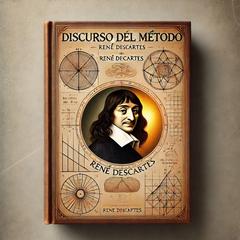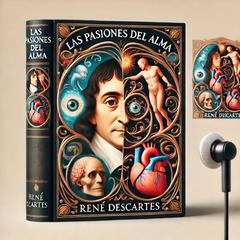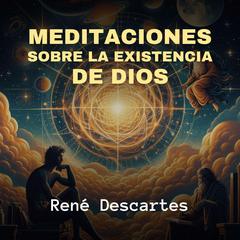 Play Audiobook Sample
Play Audiobook Sample
A Discourse on Method, Meditations on the First Philosophy, and Principles of Philosophy Audiobook
 Play Audiobook Sample
Play Audiobook Sample
Quick Stats About this Audiobook
Total Audiobook Chapters:
Longest Chapter Length:
Shortest Chapter Length:
Average Chapter Length:
Audiobooks by this Author:
Publisher Description
This three-part work includes A Discourse on Method, Meditations on the First Philosophy, and Principles of Philosophy.
By calling everything into doubt, Descartes laid the foundations of modern philosophy. With the celebrated words “I think, therefore I am,” his compelling argument swept aside ancient and medieval traditions. He deduced that human beings consist of minds and bodies, that these are totally distinct “substances,” and that God exists and that he ensures we can trust the evidence of our senses. Ushering in the “scientific revolution” of Galileo and Newton, his ideas have set the agenda for debate ever since. His philosophical methods and investigation changed the course of Western philosophy and led to or transformed the fields of metaphysics, epistemology, physics, mathematics, political theory, and ethics.
Download and start listening now!
"Contained here are two of the most important philosophy works ever written, Descartes' "Discourse on the Method of Rightly Conducting the Reason …more "
— sofarsoShawn (5 out of 5 stars)
Quotes
-
“His aim was certainty—the kind of certainty that did not rely upon unobserved entities for the explanation of natural events nor upon the authority of learned theologians but by submitting everything to reason, in short by extending the clearness and distinctness of mathematical ideas and proofs to all spheres of human knowledge and to knowledge itself.”
— Chambers Biographical Dictionary
A Discourse on Method, Meditations on the First Philosophy, and Principles of Philosophy Listener Reviews
-
" Susah juga ngikutin pemikiran ini orang hehehehe, jadinya agak bingung kasih rating akunya yang rada ga mudeng ato emang Descartes yang gila hehehe "
— Gilang, 2/9/2014 -
" Not convinced. That is all. "
— Sam, 1/28/2014 -
" Despite the title, this editions contains more than the Discourse, the other selections being given in the description appended. I read this volume to supplement the Descartes readings for a course entitled "History of Classical Modern Philosophy" taken at Loyola University Chicago during the first semester of 1980/81. "
— Erik, 1/21/2014 -
" Quite interesting discussion on research methods and the Carthesian way of thinking. Still, it was kind of tedious to read. "
— Juanpe, 1/5/2014 -
" Don't recall much about this at all I just remember it being really really bland, and didn't really discuss much of use to me. boring. "
— Nativeabuse, 12/20/2013 -
" I like to review this every so often. I get new understanding each time. "
— Joe, 11/29/2013 -
" Recently reread this one because I am thinking of studying Daniel Dennet's book, Consciousness Explained. "
— Conrad, 8/31/2013 -
" I like Descartes. Easy to read and understand. "
— Randy, 8/28/2012 -
" Loved it! I love his steps to come to truth. "
— Phil, 9/11/2011 -
" I really the humility expressed by Descartes, but his views on animals are devoid of any and all reason, I don't care what time he was living in. Common sense transcends culture. "
— Joshua, 5/26/2011 -
" I'm actually reading the project gutenburg version, but you know.... "
— Isaac, 4/27/2011
About René Descartes
René Descartes (1596–1650) was a French philosopher, mathematician, physicist, and writer and is considered to be the father of modern philosophy and the founder of analytical geometry. He constructed a system of knowledge that discards perception as unreliable and instead relies on deduction as a method to ensure that our knowledge rests upon a firm foundation. He retained a deep religious faith as a Catholic to his dying day, along with a resolute desire to discover the truth. In 1663, the Pope placed his works on the Index of Prohibited Books.
About James Adams
James Adams is one of the world’s leading authorities on terrorism and intelligence, and for more than twenty-five years he has specialized in national security. He is also the author of fourteen bestselling books on warfare, with a particular emphasis on covert warfare. A former managing editor of the London Sunday Times and CEO of United Press International, he trained as a journalist in England, where he graduated first in the country. Now living in Southern Oregon, he has narrated numerous audiobooks and earned an AudioFile Earphones Award and two coveted Audie Award for best narration.



























